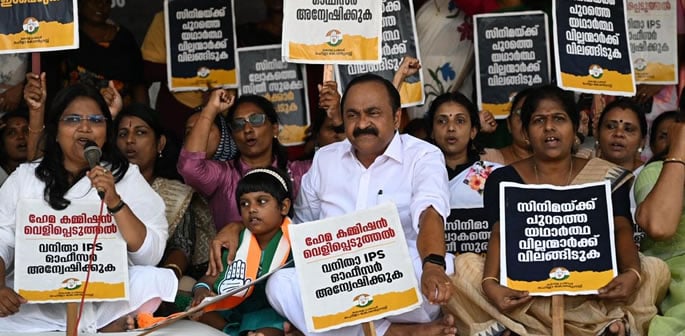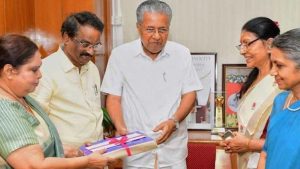Exposing the Dark Side of Kerala’s Film Industry: New Report Highlights Severe Issues
3 min read
Rampant Harassment revealed in Malayalam

Rampant Harassment revealed in Malayalam
A groundbreaking report on the Malayalam-language film industry in Kerala has unveiled serious issues affecting women in one of India’s most influential film sectors. The detailed 290-page document, produced by a three-member panel, exposes troubling conditions and widespread misconduct in the industry.
Commissioned by the Kerala state government in 2017 and led by a former Kerala High Court judge, the report from the Hema committee reveals a disturbing reality: the industry is plagued by a “mafia of powerful men” and rampant sexual harassment. Although parts of the report have been redacted to protect the identities of survivors and accused individuals, its findings paint a grim picture.
According to the report, the working conditions on film sets are deplorable. Junior artists face severe shortages of basic amenities, including toilets and changing rooms. The report describes how women are forced to relieve themselves in the bushes or behind trees due to the lack of proper facilities. This lack of sanitation exacerbates health issues, with women suffering physical discomfort and sometimes requiring medical treatment due to prolonged periods without access to hygiene facilities.
The report was completed in December 2019 but was only released recently after facing nearly five years of delays and legal challenges from the film industry. This delay was compounded by the aftermath of a high-profile sexual assault case involving leading actress Bhavana Menon, who was attacked by a group of men in February 2017. The case drew significant attention, particularly when Dileep, a major actor in the Malayalam film industry and Menon’s co-star, was named as a suspect. Although he denied the charges, Dileep was detained for three months before being released on bail. The legal proceedings are still ongoing.
Initially, Indian law prevented the identification of sexual assault survivors, but Menon revealed her identity in 2022, Following the assault, the Women in Cinema Collective (WCC), a group formed by some of Menon’s colleagues, petitioned the government to address both the assault and broader issues faced by women in the industry.
The Hema committee’s report details the systemic problems highlighted by the WCC. It describes how women in the industry are often silenced to preserve the film industry’s reputation. The report’s investigation involved interviews with various industry professionals, including artists, producers, and technicians, who provided evidence such as video recordings and messages.
The panel found that sexual harassment is pervasive and unchecked within the industry. The report asserts that a small group of influential male figures, including actors, producers, and directors, control the industry and are often involved in perpetuating these abuses. It describes how men make explicit demands for sex, creating a hostile environment where women have little choice but to comply or risk jeopardizing their careers.
Many individuals interviewed by the panel were initially hesitant to speak out due to fears of losing their jobs. This fear was confirmed as the investigation revealed that these concerns were well-founded. The report’s findings are alarming and indicate a significant need for reform within the industry.
The WCC has expressed validation of its long-held stance that the industry’s problems are deeply entrenched. Beena Paul, a founding member of the WCC, remarked that the report confirms the severity of the issues they have long highlighted. Jeo Baby, director of the critically acclaimed film The Great Indian Kitchen, acknowledged that while gender issues are still present, there is momentum for change within the industry.

The report makes several recommendations aimed at improving safety and working conditions for women in the industry. Its goal is to transform the film profession into a viable and secure career choice for all aspiring artists and technicians, regardless of gender. The hope is that future filmmakers will work in an environment as safe and respected as other professions.
Since the report’s release, it has sparked significant discussion and calls for action among activists and political leaders. Kerala’s Chief Minister Pinarayi Vijayan has pledged that any women who testify and file complaints will have their cases investigated thoroughly. In response, a public interest petition has been filed in the Kerala High Court, urging criminal proceedings against those implicated in the report. The court has ordered the government to present a copy of the report for further review and potential legal action.